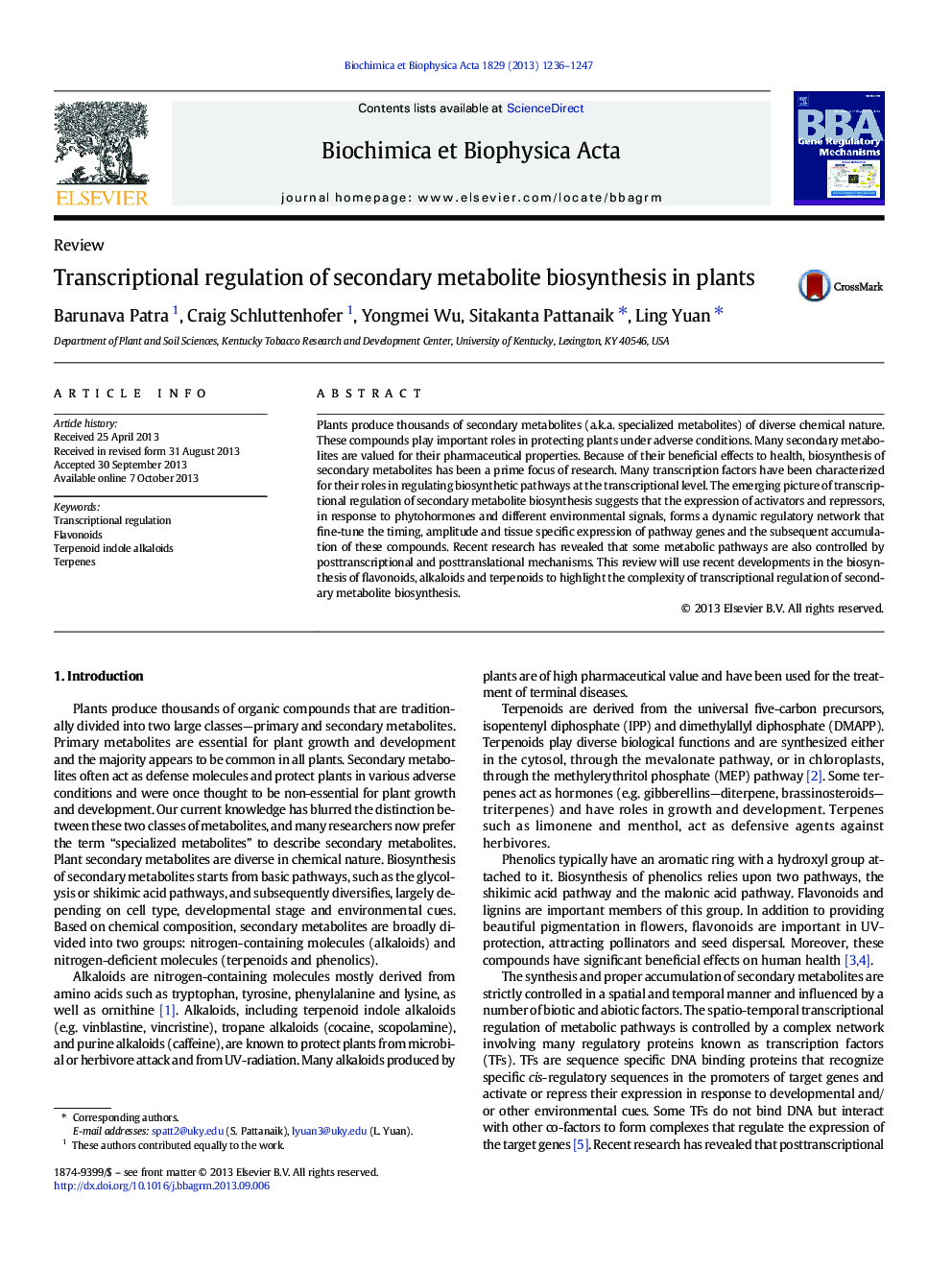| Article ID | Journal | Published Year | Pages | File Type |
|---|---|---|---|---|
| 1946477 | Biochimica et Biophysica Acta (BBA) - Gene Regulatory Mechanisms | 2013 | 12 Pages |
•Secondary (or specialized) metabolites are beneficial to plant and human health.•Networks of trans-activators/repressors fine-tune expression of pathway genes.•New findings suggest regulation at post-transcriptional/translational levels.
Plants produce thousands of secondary metabolites (a.k.a. specialized metabolites) of diverse chemical nature. These compounds play important roles in protecting plants under adverse conditions. Many secondary metabolites are valued for their pharmaceutical properties. Because of their beneficial effects to health, biosynthesis of secondary metabolites has been a prime focus of research. Many transcription factors have been characterized for their roles in regulating biosynthetic pathways at the transcriptional level. The emerging picture of transcriptional regulation of secondary metabolite biosynthesis suggests that the expression of activators and repressors, in response to phytohormones and different environmental signals, forms a dynamic regulatory network that fine-tune the timing, amplitude and tissue specific expression of pathway genes and the subsequent accumulation of these compounds. Recent research has revealed that some metabolic pathways are also controlled by posttranscriptional and posttranslational mechanisms. This review will use recent developments in the biosynthesis of flavonoids, alkaloids and terpenoids to highlight the complexity of transcriptional regulation of secondary metabolite biosynthesis.
